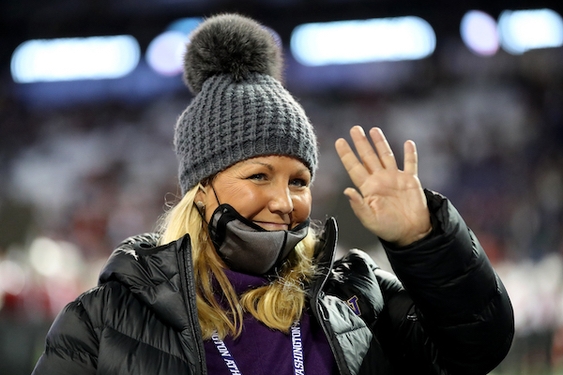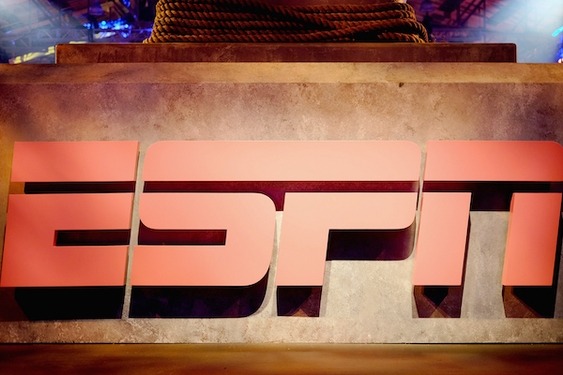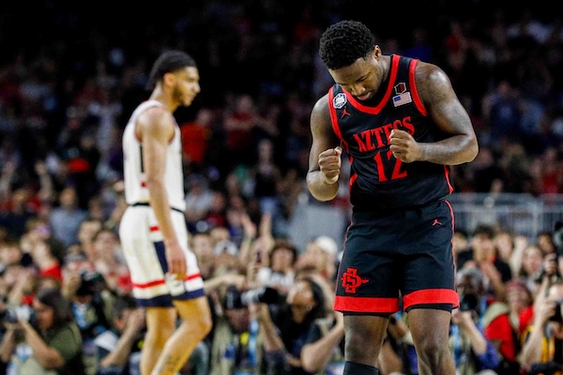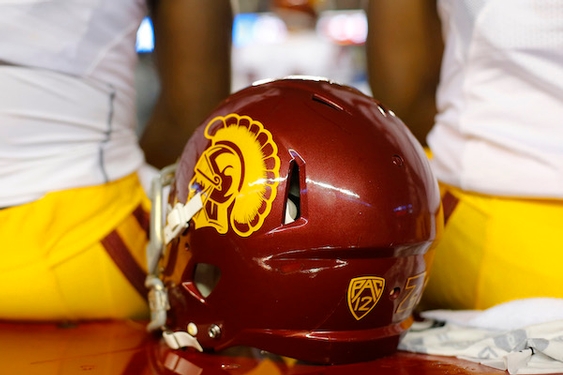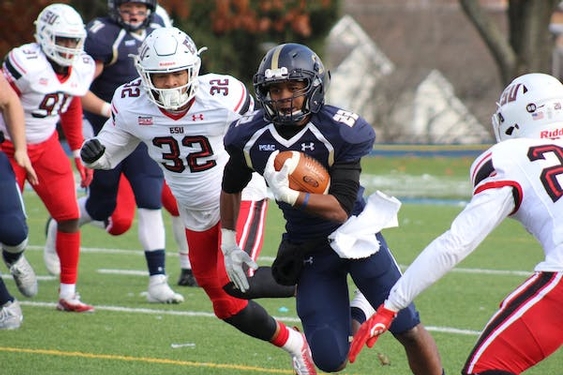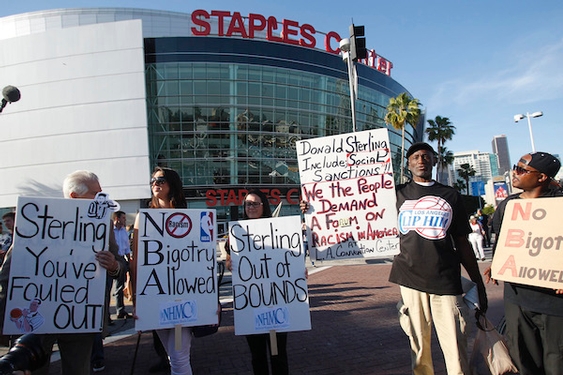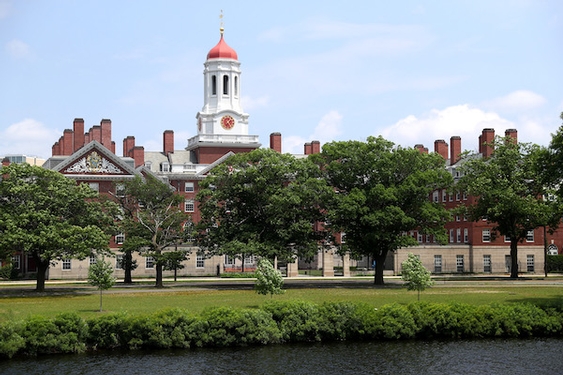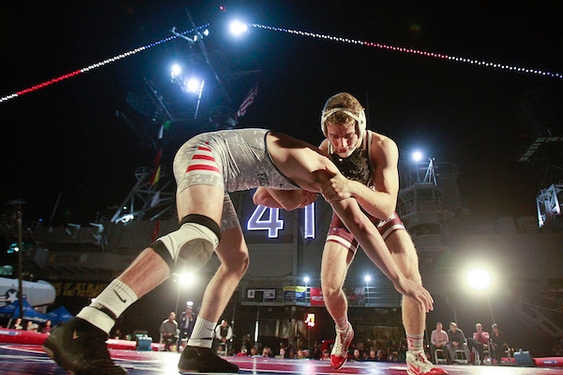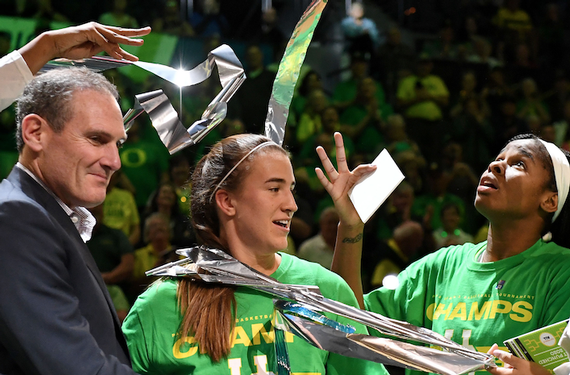Philippe Croizat’s smile only grew wider during his proclamation.
“At the end of the game,” he said in a thick French accent, “I was exhausted.”
Croziat isn’t in Los Angeles to compete in the Special Olympics World Games, but don’t tell him he’s not involved on the deepest of levels. The father of Fanelie Croizat, a Down Syndrome basketball player for the French delegation, is invested far beyond the time and money he spent to travel 5,500 miles from the French town of Lyon.
“When you’re supporting your daughter, it’s like you’re competing,” he said. “There’s no other feeling like it.”
Competition may be at the center of the World Games, but parents are equally moved by the confidence and social interaction their children experience amidst the unceasing positivity surging between the Los Angeles County venues in use this week.
Particularly for autistic athletes, whose tendencies generally include apprehension to interact with others, the hysterically supportive crowds at the World Games sometimes evoke reactions by athletes never seen before by their own parents.
Their fellow competitors, however, may be the ones by whom they’re impacted the most significantly.
“It’s an amazing atmosphere for them to meet others with their same ability — it’s not a disability,” said Jillian Aberdeen-Pierre, the mother of autistic Trinidad and Tobago swimmer Jaleel Pierre. “They’re proud of each other and they’re proud to be here. You can see it on their faces how much it means to them to share this with each other. It’s the greatest thing a parent could ask for.”
Of course, topping off the trip with a victory on a grand stage has a powerful effect all its own.
Matt Pascoe, a 26-year-old Australian, bested the silver medal he won in the 400 meters at the 2011 Athens World Games with a gold on Wednesday in L.A.
Pascoe held off a charge down the stretch as his parents and flag-toting sister Jessica cheered wildly at USC’s Loker Track Stadium. The Pascoe family’s wails of joy were drowned out by the throng in the stands that erupts during the final 100 meters of every race, no matter which of the 165 countries at the World Games is crossing the finish line.
“The stands are packed all day and everybody cheers for everybody,” Matt Pascoe’s mother, Patricia Pascoe, said. “The atmosphere is brilliant. We weren’t going to miss this because this is the only time these athletes get an opportunity like this.”
After he was born autistic as the oldest of quadruplets — he has three sisters, none of whom have an intellectual disability — Matt Pascoe had no affinity for athletics until he was 15 years old.
The first five years of Matt’s life weren’t easy for him or the family.
“It was tough. It took him about that long to learn to deal with his autism and for us to learn how to deal with him,” John Pascoe, Matt’s father, said. “He eventually became part of a school for autism, where he got involved with athletics and it was the best thing that ever happened to Matt.”
Matt Pascoe’s confidence on the medal stand seemed as tangible as the gold medal hanging around his neck.
For some parents, the benefits of the World Games extend beyond sentiment. The Healthy Athlete program offers some athletes the chance for healthcare to which they’ve never been exposed.
Athletes were lined up in expansive tents in the center of USC’s campus, receiving the first teeth cleaning, eye exam or hearing loss diagnosis of their lives. Fillings, glasses and hearing aids are made available on the spot.
Many of their parents couldn’t afford to be in attendance, but Joel Pabia’s dual role as a parent and coach for the Philippines allowed him to witness the personal care for his daughter Christine, 17. A swimmer with Down Syndrome, Christine Pabia suffers from severely hampered eyesight, but doesn’t have access to an optometrist in the Philippines. After a seventh-place finish in the 50 meter freestyle on Wednesday, she waited in line to see one for the first time.
“It’s a big process in the Philippines to see a doctor,” Joel Pabia said. “And they don’t have specialists like this. To be here and have this be a part of the experience, we feel so lucky.”
Most parents at the World Games never imagined they would find themselves at one of the highest-profile sporting events on the planet. The difficulty of the journey unanimously seemed to make the destination all the more spectacular.
“As a parent, whatever you are, you have to be humble,” Philippe Croizat said. “You don’t decide whether your child has a disability. You have to see how to cope with a handicap to find a way to freedom.”
———
©2015 the Inland Valley Daily Bulletin (Ontario, Calif.)
Visit the Inland Valley Daily Bulletin (Ontario, Calif.) at dailybulletin.com
Distributed by Tribune Content Agency, LLC.



